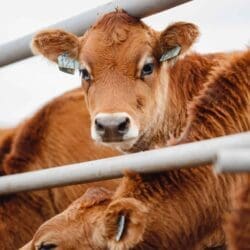Welcome to the Cruelty.farm Blog
The Cruelty.farm Blog is a platform dedicated to uncovering the hidden realities of modern animal agriculture and its far-reaching impacts on animals, people, and the planet. Articles provide investigative insights into issues such as factory farming, environmental damage, and systemic cruelty—topics often left in the shadows of mainstream discussions.
Every post is rooted in a shared purpose: to build empathy, question normalcy, and ignite change. By staying informed, you become part of a growing network of thinkers, doers, and allies working toward a world where compassion and responsibility guide how we treat animals, the planet, and each other. Read, reflect, act—each post is an invitation to change.
Horseracing, often celebrated as a prestigious and exhilarating sport, conceals a grim and distressing reality. Behind the façade of excitement and competition lies a world rife with profound animal cruelty, where horses are compelled to race under duress, driven by humans who exploit their natural survival instincts. This article, "The Truth About Horseracing," seeks to uncover the inherent cruelty embedded within this so-called sport, shedding light on the suffering endured by millions of horses and advocating for its complete abolition. The term "horseracing" itself hints at a long history of animal exploitation, akin to other bloodsports such as cockfighting and bullfighting. Despite advancements in training methods over the centuries, the core nature of horseracing remains unchanged: it is a brutal practice that forces horses beyond their physical limits, often resulting in severe injuries and death. Horses, naturally evolved to roam freely in herds, are subjected to confinement and forced labor, …

























































